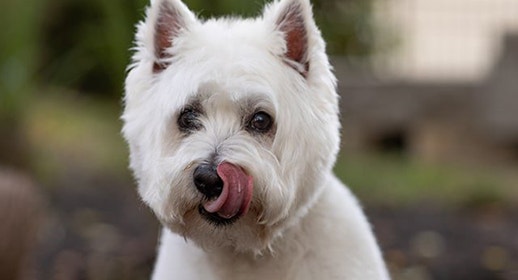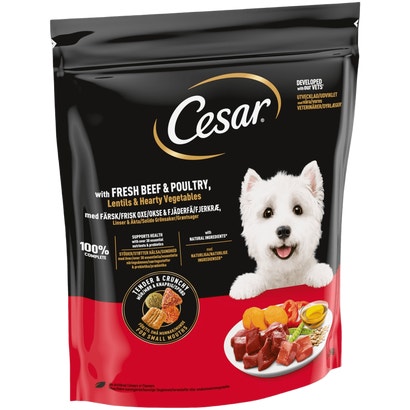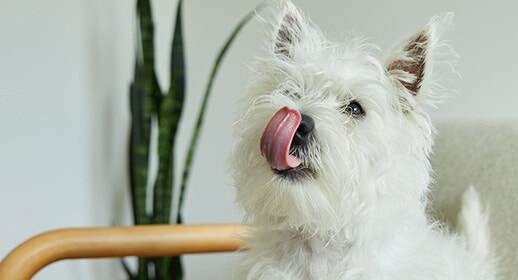- Homepage
- Discover a dog friendly world
- Dog-friendly FEEDING
- Human foods dogs can’t eat


They say sharing is caring, but when it comes to our furry besties, sometimes caring is not sharing! Check out our list of human foods dogs can’t eat, to keep them safe and healthy.
No matter what you’re eating, it’s likely your furry friend isn’t too far away - staring up at you with their pleading puppy dog eyes! While it can be a temptation to give in to your pooch’s begging and offer them the odd table scrap, it’s really important to know what foods are toxic for dogs or could be a choking hazard.
It’s more widely known that dogs can’t eat chocolate, onions and raisins, but there are some other lesser known threats to be aware of too.
Before giving your pooch a bite of your grub, take a look at our list of foods dogs can’t eat.
What foods are toxic for dogs?
We all mean well when we share our food with our four legged friends, but some commonly eaten human foods - even fruit and vegetables - can be toxic for dogs and make them very unwell. And sometimes it only takes a small amount to cause a bad reaction.
Here are some of the main toxic foods for dogs and symptoms to look out for if you think your dog may have got their paws on one of them. It’s important to call your vet if your dog eats any of these toxic foods, as in some cases the consequences could be severe, and even fatal, if left untreated.
Chocolate
Chocolate is one of the most common causes of food poisoning in dogs, so it’s crucial you keep your treats out of reach of them. Even just a little bit of chocolate can be dangerous, especially dark varieties, so get your dog seen by a vet immediately if they eat any amount. Signs of chocolate poisoning in dogs can include vomiting, diarrhoea and seizures.
Grapes and raisins
It’s not 100% clear why dogs can't eat grapes and raisins, but the seemingly safe fruit can cause kidney failure and liver damage in dogs. Symptoms of raisin or grape poisoning include vomiting and diarrhoea, loss of appetite, lethargy and weakness. If your dog even eats one grape, call your vet straight away.
Onions, garlic, chives and leeks
This might be surprising, but dogs can’t eat onions, garlic, chives or leeks. That’s because
Allium vegetables are dangerous foods for dogs and can cause gastrointestinal irritation and red blood cell damage. Signs of illness can include vomiting and diarrhoea, lethargy and a decreased appetite. These signs can occur up to a few days later, so keep an eye on your dog and get them seen by a vet if they exhibit any symptoms.
Avocados
Avocados may be a human superfood, but sadly they’re not so good for our furry companions. Not only are they high in fat, but the fruit contains a fatty acid called persin, which is toxic for dogs. A small amount of avocado flesh is unlikely to do much harm, but if your dog eats too much of it, they may experience vomiting and diarrhoea. The leaves and pit of an avocado are the most toxic and can be very dangerous for your dog if eaten.
Seeds and pits of certain fruits
The flesh of an apple, apricot, cherry or plum is safe for your pooch to snack on in moderation, but the seeds, pits and stems can be very dangerous for them. That’s because they contain cyanide, which can cause vomiting, irregular heartbeat, seizures, coma, and worse. If you ever let your pooch have any of these fruits, be very careful to remove the core, stem, seeds and pits first.
Macadamia nuts
It’s unknown just what it is about these nuts that makes them poisonous to dogs, but macadamia nuts are among the foods dogs can’t eat. Just a few nuts can cause numerous nasty symptoms like weakness, overheating, and vomiting. Other nuts like almonds and pistachios may not be toxic, but can be a choking hazard, so are best avoided.
Artificial sweetener (Xylitol)
Xylitol is a sweetener found in many human foods, but it’s gained itself a firm spot among the foods dogs can't eat. If your dog eats something sweetened with xylitol their blood sugar can drop dangerously low, which can cause liver failure and even be fatal. Peanut butter is one particular food to be careful of, as it is commonly used as a treat for dogs, but can contain the dangerous sweetener. Specially made “dog peanut butters” are the safest option, if you’d like to treat your dog to the odd splodge of the nutty stuff.
Alcohol and caffeine
It probably goes without saying that alcohol is not appropriate for your furry pal. It not only causes intoxication, but it can lead to sickness, diarrhoea and even central nervous system damage. The same goes for caffeine - so no sharing your leftover coffee with your pooch! Caffeine contains a stimulant that is toxic to dogs, and can cause potentially fatal diarrhoea, vomiting, seizures, and irregular heartbeats.
Other dangerous foods for dogs
Milk and dairy products
People often wonder if it is safe to give a dog milk, and the answer is yes and no. Some dogs are absolutely fine consuming dairy products, but others will experience an upset stomach. The odd lump of cheese should be fine (if kept as a very occasional treat), but it’s not recommended that you serve your dog a bowl of milk, as many dogs are lactose intolerant. When it comes to keeping your dog hydrated, water does just the trick!
Cooked bones
Giving your pooch raw bones to chew on can be a fun treat for them, but you should avoid cooked bones at all costs! That’s because cooked bones can splinter, which can harm their throat or even perforate their gut, which can be fatal.
Salt
Be super careful about how much salty food you allow your dog to eat. A little pinch here and there as an ingredient is ok, but too much salt can lead to dehydration, vomiting and diarrhoea. Salt is often hidden in processed foods, so it’s sensible to avoid giving your dog these. That includes crisps, chips and processed meats.
So, next time you think about offering your pooch a bite of what you’re having, check whether it’s safe for them to eat. It’s not worth them getting poorly over, after all. Check out the CESAR® dog blog for more tips and advice for caring for your furry bestie, such as how to socialise your dog and how to groom your pooch.


